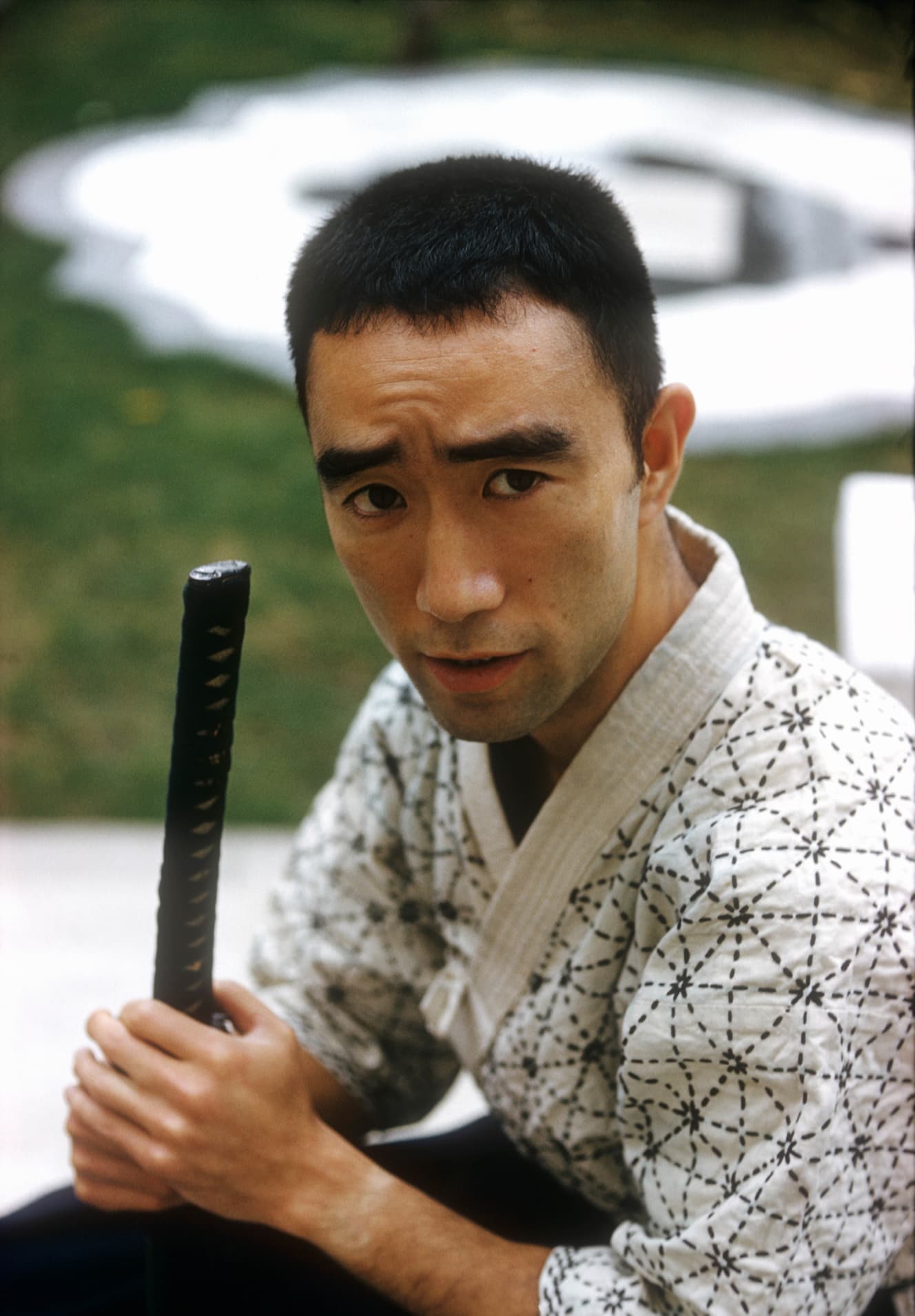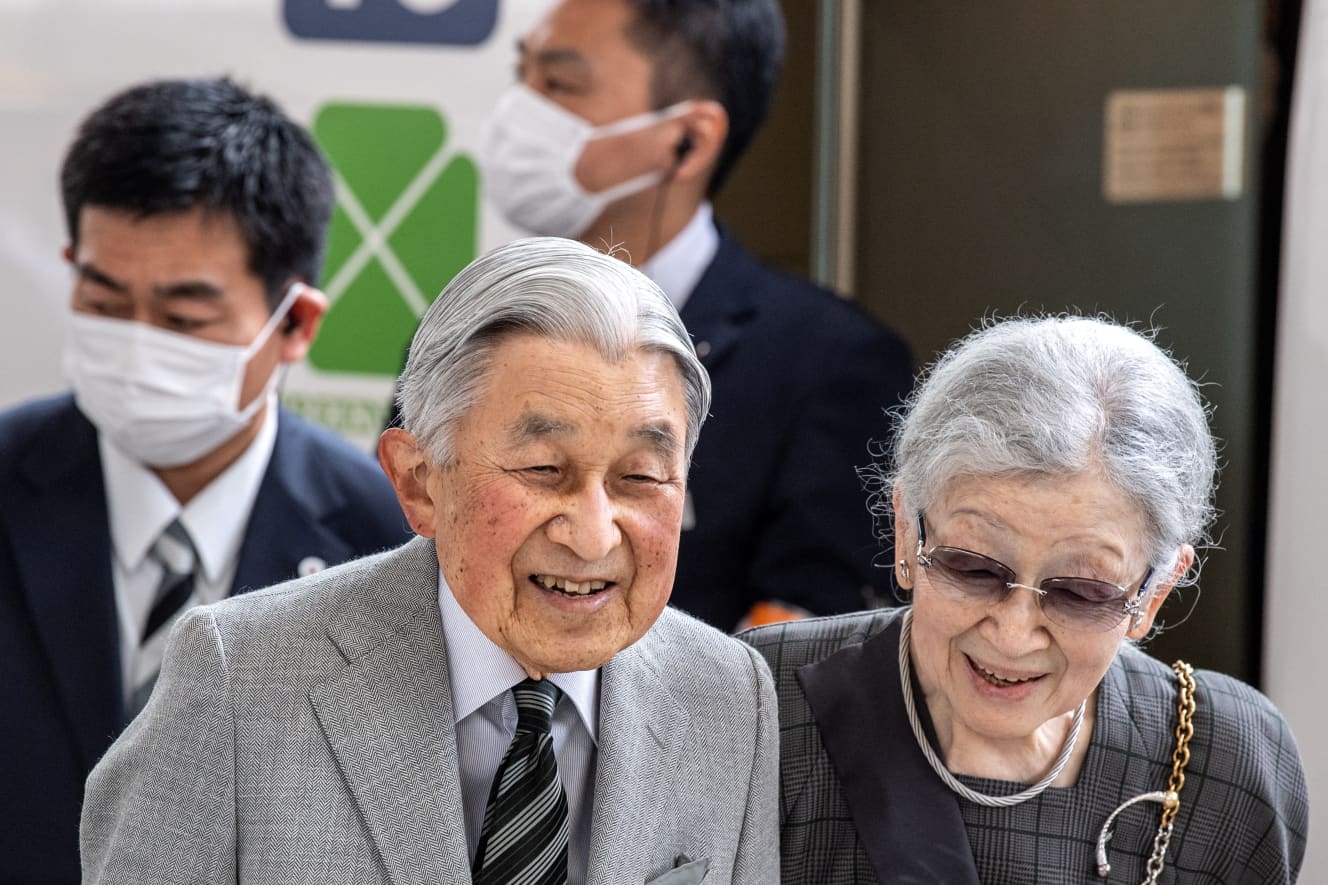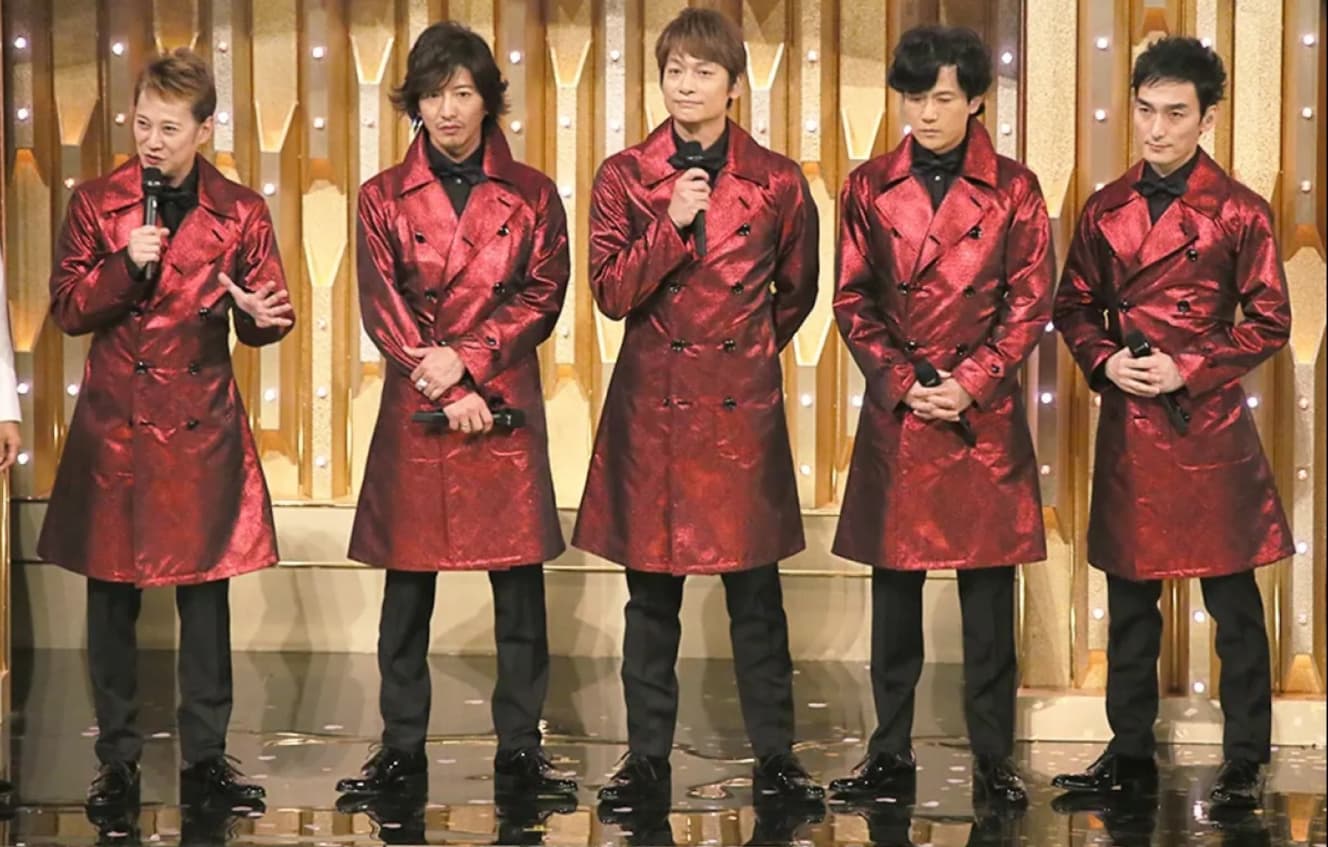The Hidden Father of Johnny’s: Unseen Ties to SMAP
Akio Nakamori's Theory of Johnny's Desire Chapter 5: Yukio Mishima and Johnny's
The Relationship Between Mishima and the Father of Johnny’s
In the previous article, “[Behind the Johnny’s Collapse Riots…] Now Revealed: The Identity and Brilliant Life History of the “Hidden Father of Johnny’s””, we discussed the life history of the late Taisuke Fujishima, the “Hidden Father of Johnny’s”. Fujishima and that national idol had a great deal in common.

Yukio Mishima was born in January 1925, in the 14th year of the Taisho era. His age in full years coincided with the years of the Showa era.
In 1945, at the age of 20, he witnessed the end of World War II. In 1955, at 30, he began bodybuilding, and in 1965, at 40, he started writing his life work, “The Sea of Fertility.” Then, in 1970, at the age of 45, he committed seppuku (ritual suicide).
Next year marks the 100th anniversary of Yukio Mishima’s birth. If he were alive, he would be 100 years old, which means it would be the 100th year of Showa.
There is an unexpected connection between Mishima and Johnny’s (the talent agency). That connection revolves around one man.
He is the brother-in-law of the founder, Johnny Kitagawa, and the husband of Mary Kitagawa, making him the father of Julie Fujishima. I referred to him as the hidden father of Johnny’s.
That man is Taisuke Fujishima.
Fujishima was born in 1933, eight years younger than Mishima. The two were senior and junior at Gakushuin, having attended elementary school (Mishima later went to Tokyo Imperial University). They first met when Fujishima was a senior in high school, at a symposium for the Gakushuin alumni magazine, where the 27-year-old Mishima was present.
They maintained a relationship from that point onward.
When Fujishima was 23, he published the novel “The Lonely Man,” to which Mishima wrote a preface.
“In a uniform with accordion pleats, tailored trousers, and shiny shoes, affected, ironic, and beautiful—that is the brilliant tradition of Gakushuin. (Omitted) Fujishima belongs to the old Gakushuin model in appearance, language, and behavior, which reassures us seniors.”
In this preface, Mishima praised the novel as skillfully skillful. It became a topic of discussion as a kind of exposé about Fujishima, who was a friend of the Crown Prince (later Emperor Heisei), became a bestseller, and was even adapted into a film. Subsequently, Fujishima maintained a friendship with Mishima as a junior writer.
The Unexpected Distance to the Imperial Family

Fujishima has a book titled “The Emperor, Youth, Death,” with the subtitle “Regarding Yukio Mishima,” published in April 1973. It includes an article mourning Mishima that was published in the February 1971 issue of “Shokun!”
When Fujishima, who debuted as a writer, went to pay his respects to Mishima, he was told, “That suit is not good.” Mishima then took him to a high-end tailor in Ginza and helped him choose the fabric for a new suit.
Additionally, there was this passage:
“Mishima frequently asked me about the Imperial Family, particularly the Crown Prince. ‘If I get the chance, I want to go to the Togu Palace with you. There are things I want to say to the Crown Prince,’ he said with a serious expression.”
There’s also a secret anecdote that Mishima had an unofficial matchmaking meeting with the young Michiko Shoda, who would later become the Crown Princess.
At Gakushuin, during Prince Akihito’s time as Crown Prince, Mishima’s eldest daughter was his classmate. It is said that on the day Mishima shouted, “Long live His Majesty the Emperor!” and committed seppuku, his daughter left school early (according to the late Manjō Nomura V, who was also a classmate, as mentioned in the film “Miyabi: Yukio Mishima”).
What must the current Emperor have thought about this?
Now, in Fujishima’s earlier book “The Emperor, Youth, Death,” there is a chapter titled “A Letter to His Imperial Highness the Crown Prince.”
“It has been over fifteen years since we graduated from Gakushuin University. (Omitted) Do you remember, Your Highness?”
This essay is written in the form of a letter to the Crown Prince. However, I was astonished to learn that it was published in the women’s weekly magazine “Bihō.”
The superficiality and triviality of using connections to the Imperial Family for profit, a tendency that has persisted since his debut novel “Kokou no Hito,” makes one question whether he feels any shame as a Gakushuin graduate.
The image of falsity remains vividly.

Mishima described Taisuke Fujishima as having a refined appearance and bearing, suggesting a good upbringing. His writing is exceptionally skilled, and his views are conservative and hawkish, expressing concerns about Japan’s future. Yet, he writes frivolous articles for women’s magazines that flaunt his connections to the royal family. This creates a stark contrast between his noble and elegant appearance and his rather vulgar, populist, and shameless demeanor.
Fujishima produced a vast body of work, becoming a bestselling author and a regular on wealth rankings. He owned multiple racehorses, including one named “Hikaru Genji.” During his daughter Keiko’s childhood, he lived in America with her. Keiko bears a striking resemblance to her father.
Despite his literary talent and early success with bestsellers, Fujishima ventured into politics and flaunted his connections with the royal family by marrying the granddaughter of literary giant Takahama Kyoshi. He consistently pursued brand recognition. Although he amassed wealth, he has not won any literary awards and faced electoral defeat. The term vanity is apt in describing him.
His crowning achievement is the series “The Strange Country Nippon,” published under the pseudonym “Paul Bonne,” which consists of over twenty books. He claimed to be a French journalist living in Japan, looking down on Japanese people and lecturing them—a disgraceful behavior.
The significance of Fujishima becoming the hidden father of Johnny & Associates by remarrying Mery Kitagawa is substantial. Johnny’s productions and Mery’s management, along with Fujishima’s financial backing and connections in political and business circles, helped complete the vanity entertainment empire.
Masataka Kimata, a former editor-in-chief of “Weekly Bunshun” and the desk chief responsible for reporting on the sexual abuse scandal involving Johnny Kitagawa, made an interesting remark.
The previous article led to a lawsuit from Johnny’s side, and the civil court recognized the veracity of the allegations against him regarding sexual abuse of boys (the case was concluded in 2004).
Kimata held several meetings with Johnny’s side, which eventually led to the 2015 interview with Mery Kitagawa in “Weekly Bunshun.” Mery became extremely agitated and furious during the interview, calling in SMAP’s manager, Michi Iijima, to confront the situation.
The “fate” of SMAP

“You, the Bunshun, are clearly asking, so if there’s going to be a confrontation, I’ll have you take SMAP with you and leave starting today.”
This is what she said to Iijima. As a result, this article caused SMAP to disband.
Immediately after the article was published, Merry barged into the editorial department and vehemently criticized Bunshun’s article.
“Furthermore, she spoke about her previous relationship with Bunshun (including connections with her husband, the writer Taisuke Fujishima) and left after about five hours of conversation.” (PRESIDENT Online, November 6, 2023)
This is an important testimony. Taisuke Fujishima was a regular contributor to “Bungei Shunju” and the hawkish magazine “Shokun!”—in a sense, a cultural figure for Bunshun. It is said that he also had deep connections with the upper echelons of Bunshun.
The “Weekly Bunshun” campaign to expose Johnny’s sexual misconduct began in 1999. Taisuke Fujishima, however, passed away two years earlier, in June 1997, at the age of 64. One can’t help but sigh.
If Fujishima had been alive, he surely would have approached the upper management of Bunshun to have the articles about Johnny’s sexual misconduct suppressed. The testimony that Merry referred to Taisuke Fujishima’s name while arguing with Bunshun’s reporters sufficiently supports this idea (the hidden father, Fujishima, was still alive in Merry’s mind).
If Taisuke Fujishima had lived a little longer, the relationship between Bunshun and Johnny’s would have changed. Merry’s critical interview of Iijima Michi would likely not have happened.
Then what? That’s right, SMAP would not have disbanded! They might still be active today, singing new songs.
In the next article , “[Very Similar to the End of the Johnny’s Sexual Assault Case]: The ‘Too Implicit’ Stage Works Left Behind by Yukio M ishima,” we will delve into the relationship between the two stage works by Yukio Mishima and the uproar caused by Mr. Kitagawa.
Interview and text: Akio Nakamori Photo: Afro (1st and 2nd) Kazuhiko Nakamura (3rd) Shinji Hasuo (4th)